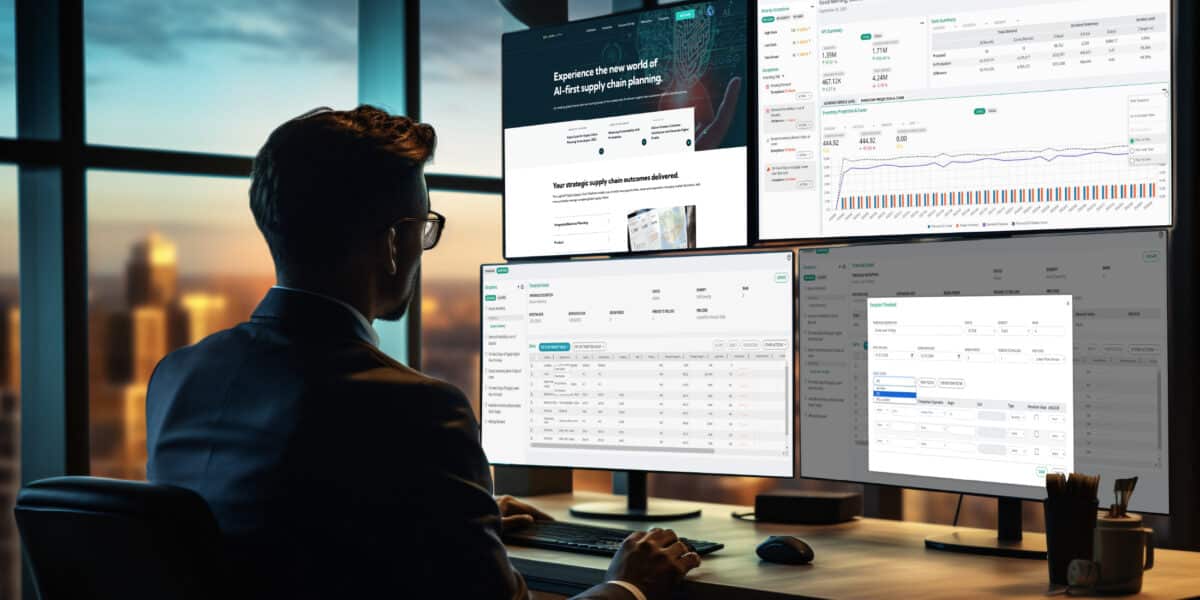
All the signs were there. People just weren’t paying attention.
How many times do we tell ourselves that we should have known that something good or bad would happen? Well, the same line of thinking is running across supply chain leaders’ minds after seeing how interconnected their supply chains are.
In its post-COVID-19 report, Enterprise Applications Consulting (EAC) uncovered a common thread across manufacturing and distribution companies that performed the best – and even prospered – in a year that most companies could only describe as difficult.
“Those companies were able to use the intelligence in their supply chains to unite the entire enterprise towards the goal of surviving and even prospering during the global crisis,” Joshua Greenbaum, EAC founder and CEO, cited in the report. “The supply chain professionals who enabled these efforts were able to succeed because they broke down silos and engaged the entire extended enterprise in ensuring that the flow of supplies and finished goods continued under truly extraordinary circumstances.”
How is this still possible considering investments in ERP implementations have steadily risen over the past few years? In fact, Gartner reported that the ERP market expanded by 9% in 2019, driving a worldwide value of approximately $39 billion in total software revenue.
According to Greenbaum, the outcomes of the past year speak for themselves: “ERP systems were never designed to fulfill the collaborative role supply chains need to succeed despite extraordinary obstacles.”
Crisis and Opportunity Favor the Prepared
For Logility customers, the importance of supply chain planning and intelligence isn’t a new concept – nor are the limitations of ERP systems. Yet, the disruptive challenges of the pandemic amplified the advantages of using a system that can detect the slightest supply chain tremors and provide insight into root causes and alternatives to resolve them proactively.
“There was such added complexity coming,” shared Angie Taylor, vice president and chief commercial officer at Plastic Packaging Technologies (PPT), during the survey. “For us, it’s about taking care of our customers and helping them in situations like the pandemic where we see a lot of volatility in product and demand.”
While a specialized ERP may be great at capturing transaction and finance-facing data, basic costing and supplier information comprise only a small portion of the data supply chains need. Supply chain operations also need to pull data from more internal and external sources and convert it into intelligence with analytics capabilities that address specific supply chain topics that no other business area handles.
“If we are collaborating with [our suppliers], we get more insight, and they’re giving us better signals so we can better plan our production. We’re able to treat them the way we treat our customers,” confirmed Taylor. “We’re able to share a lot more information and make [our customers] feel more secure, [too].”
It’s Time to Release Supply Chains from the Limitations of ERP Systems
As EAC’s research and PPT’s experience suggest, supply chains have tremendous potential embedded in them to see their enterprise through disruption and opportunity. They not only have the power to sense change faster than the rest of the business, but also to pivot faster by identifying alternative actions, partners, and routes to market in real time.
Unfortunately, ERP systems – no matter how modern, up to date, and intelligent – cannot support the comprehensive and trusted planning, guidance, and execution needed to wield that influence.
This is where supply chain planning solutions, such as Logility’s digital supply chain platform, can help. With collaboration, intelligence, and connection, companies are optimizing the value of their supply chains by tackling the limitations of ERP and paving the way to a future of resilience and prosperity.
Want to know how you can do the same for your supply chain organization? Learn more about EAC’s research, PPT’s experience, and Logility solutions during our virtual panel discussion on June 23rd. Register today!

Written by
Shawn Reynolds
Executive Vice President, Marketing
Short bio
Shawn Reynolds, Executive Vice President, Marketing, leads global marketing strategy, manages brand awareness, and develops programs that drive the success of Logility’s products and services. Shawn is an accomplished executive with more than 20 years of successfully leading world-class marketing organizations. Prior to joining Logility, he was chief marketing officer at enosix, an ERP integration provider. He has also held roles as chief marketing officer at Telit Wireless as well as global vice president at SAP, where he was responsible for leading the company’s global marketing for digital supply chain.



